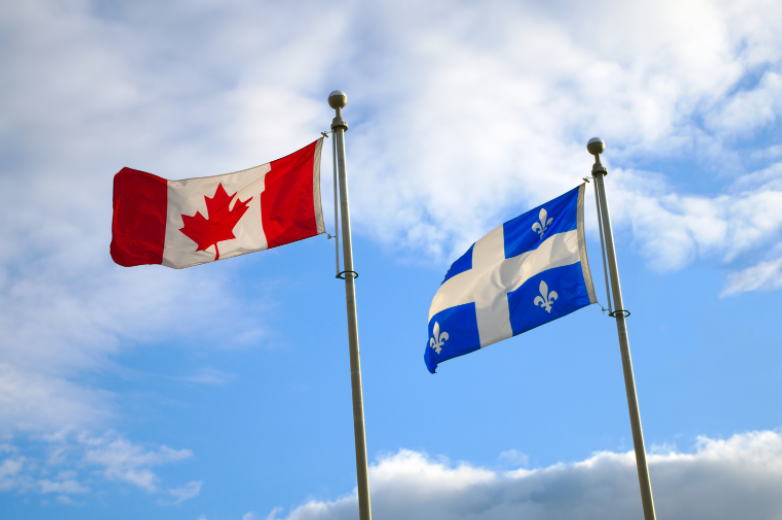The English-language debate in the run-up to the Sept. 20 election exposed one significant issue with each of Canada’s major parties: that their leaders were more willing to side with Quebec Premier François Legault’s nationalist ideology than with the Canadians who would inevitably be harmed by Bills 21 and 96. The bills prohibit religious clothing in parts of the public sector, and try to cement Quebec’s status as a French-speaking nation, respectively.
When debate moderator Shachi Kurl denounced the bills as discriminatory, all three candidates of the major federal parties chose to go on the offensive, arguing that Kurl ought to publicly apologize for her commentary regarding Quebec legislation.
Less than a week later, Trudeau backpedalled, suggesting that his party would work to stop Bill 21 from passing into law should they get elected.
Canadians, of course, can see through this strategic political partisanship quite easily. While this sort of “doublespeak” may be expected during an election period, it stands to reason that conceding to Quebec politicians when it is politically beneficial to do so only proves federal leaders’ lackluster approach towards human rights issues in Canada.
During the height of this election period, each major candidate brutally showed Canadians that politics will always come before equity and justice: why risk the votes of a certain group, when you can deal with the problem after you win?
Anglophone and Francophone Canadians appeared split on whether Kurl’s denouncement of the bills as discriminatory holds value or if it was indeed offensive towards Quebecers. With some Anglophones left puzzled at the French reaction, the issues of Islamophobia and anti-immigration and their increasing presence in Quebec have become intertwined with conversations surrounding the preservation of Quebec’s cultural identity.
Bloc Québécois Leader Yves-François Blanchet suggested as much when he stated that “Those laws are not about discrimination. They are about the values of Quebec.”
But is this really a fair association?
Looking Back at History
It goes without saying that so much of what we see in the behaviour of Quebec politicians against the rights of ethnic minorities and immigrants is not really anything new.
Legault recently confirmed that he has no problem associating himself with perhaps one of the most reprehensible leaders in Quebec’s history, Premier Maurice Duplessis. In response to Gabriel Nadeau-Dubois’ critiques of Legault’s attempt to sway the Quebec vote towards the Conservatives, Legault retorted that “Duplessis had his faults, but he always stood up for the Quebec nation.”
Before Dupplesis’s crackdown during the 1940s and ‘50s on Quebec’s minorities and freedom of speech, we might go further back to Henri Bourrassa, who is today associated with the early rise of nationalism in Quebec.
Bourrassa, who founded Le Devoir in January of 1910 for the ligue nationaliste canadienne, was a strong defender of the rights of French Canadians. Some have come to associate him with more extreme political views than he originally advocated for – such as the complete separation of French-speaking Canada from its English counterpart.
Nonetheless, Quebec’s history shows that Legault’s actions during this election period – while excessive – descends naturally from a long line of advocacy for maintaining the values of Quebec, even at the cost of the rights of minorities in the province.
Interestingly enough, in his victory speech following Monday night’s election, Prime Minister Justin Trudeau quoted from former Prime Minister Wilfrid Laurier, who lost the 1911 election due, in part, to the influence of Bourrassa’s rising nationalism in the province.
The success of Bourrassa in advocating for the Conservatives and in attacking Laurier’s liberal platform may be what Legault inadvertently had in mind when he pushed things too far by telling Canadians that the Liberal and NDP platforms were “dangerous” for Quebec autonomy.
A Changing Quebec
Montreal may have voted majority Liberal in the 2021 election. But based on the reaction of many French Canadians to the English debate — as well as the implication that Quebec’s values and cultural identity is being challenged — issues of human rights in Quebec must be engaged with as carefully as possible.
With this in mind, our political parties are tiptoeing a sensitive line: trying not to speak over the voices of French-Canadians while also keeping up appearances for underprivileged and minority voters with promises that equity and justice are high on their priority list.
Not everyone will be so easily convinced.
For many, Quebec has been on an ideological transformation reminiscent of France’s Islamophobic rhetoric – a progression of hate that may only get worse when Canada’s politicians are changing sides whenever it suits their needs.
How can this rising tide of nationalism — which, at its worst, is detrimental to the lives of immigrants and visible minorities — be separated from its authoritarian roots?
Only with the understanding that the introduction of immigrants and the increase in diversity doesn’t pose a threat to French-Canadian culture, and that the two are not mutually exclusive and can coexist alongside each other.
Hanna Warsame is an MA student in English at the University of Ottawa. She is passionate about disability rights, cultural identity, and immigration as they pertain to Canadian history. She has previously written articles on human rights for The Pigeon and the NASSR Graduate Student Caucus.




